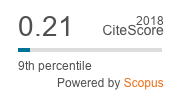Experiencia Subjetiva del Tiempo y su Influencia en el Comportamiento:
Revisión y Modelos
Mots-clés :
Percepción del tiempo, Self, Reloj interno, Memoria episódica, Pensamiento futuroRésumé
Pesquisadores têm tentado explicar, desde o início da psicologia, a experiência temporal das pessoas e sua influência nas cognições, emoções e comportamentos. Trata-se de uma das dimensões mais complexas e influentes da psique, que tem sido abordada a partir de concepções diferentes e sem uma estrutura consensual. Este artigo tem o objetivo de contribuir na sistematização da psicologia do tempo, ampliando um modelo de quatro níveis, aprofundando na percepção do tempo vital ou tempo III. Trabalhos incluídos foram selecionados segundo a sua importância na historia da psicologia ou índice de citação. Sugere-se um modelo explicativo do Tempo III, que inclui discussão e debate e visa integrar os diferentes modelos existentes na literatura.
Téléchargements
Références
Boyd, J., & Zimbardo, P. (2005). Time Perspective, health and risk taking. In A. Strathman & J. Joireman (Eds.), Understanding behavior in the context of time (pp. 85-107). Mahwah: LEA.
Bruner, J. (2003). La fábrica de historias. Buenos Aires: FCE.
Carstensen, L., Isaacowitz, D., & Charles, S. (1999). Taking time seriously. A theory of socioemotional selectivity. American Psychologist, 54, 165-181.
Draaisma, D. (2006). Porque el tiempo vuela cuando nos hacemos mayores. Madrid: Alianza.
Droit-Volet, S. (2000). L’estimation du temps: Perspective développementale. L’Année Psychologique, 100, 443-464.
Fraisse, P. (1963). The psychology of time. New York: Harper & Row.
Fraisse, P. (1984). Perception and estimation of time. Annual Review of Psychology, 35, 1-36.
Friedman, W. (2005). Developmental and cognitive perspectives on humans´ sense of the times of past and future events. Learning & Motivation, 36, 145-158.
Greenberg, J. (2008). Understanding the vital human quest for self-esteem. Current Perspectives in Psychological Science, 3, 48-55.
Guyau, J. M. (1901). Génesis de la idea del tiempo. Madrid: Librería F. Fe.
Jaques, E. (1984). La forma del tiempo. Buenos Aires: Paidos.
James, W. (1950). The principles of psychology. New York: Dover. (Trabajo original publicado en 1890).
Laplanche, J. (1996). La prioridad del otro en psicoanálisis. Buenos Aires: Amorrortu.
Marx, K. (1971). El capital. Madrid: EDAF. (Trabajo original publicado en 1867).
Mischel, W., Shoda, Y. & Peake, P. (1988). The nature of adolescents competencies predicted by preschool delay of gratification. Journal of Personality & Social Psychology, 54, 687-696.
Moffatt, A. (1982). Terapia de crisis (teoría temporal del psiquismo). Montevideo: Búsqueda
Nuttin, J. (1985). Future time perspective and motivation. Louvain: Leuven U. Press ”“LEA.
Nurmi, J. E. (1989). Planning, motivation, and evaluation in orientation to the future: A latent structure analysis. Scandinavian Journal of Psychology, 30, 64-71.
Oettingen, G., & Thorpe, J. (2006). Fantasy realization and the bridging of time. In L. Sanna, & E. Chang (Eds.), Judgments over time (pp. 120-143). London: Oxford.
Piaget, J. (1992). El desarrollo de la noción de tiempo en el niño. Bs. As: FCE. (Trabajo original publicado en 1946).
Pyszczynski T., Greenberg, J., & Solomon, S. (1999). A dual-process model of defense against conscious and unconscious death-related thoughts: An extension of terror management theory. Psychological Review, 106, 835-845.
Riediger, M., & Freund, A. (2004). Interference and facilitation among personal goals: Differential associations with subjective well-being and persistent goal pursuit. Personality &. Social Psychology Bulletin, 30, 1511”“1523.
Roeckelein, J. (2000). The concept of time in psychology. Conneticut: Westwood.
Sanchez Lopez, M. (1999). Temporalidad, cronopsicología y diferencias individuales. Madrid: Ramon Areces.
Skinner, B.F. (1985). Aprendizaje y comportamiento. Barcelona: Martínez Roca.
Strathman, A., Gleicher, F., Boninger, D. S., & Edwards, C. S. (1994). The consideration of future consequences: Weighing immediate and distant outcomes of behavior. Journal of Personality and Social Psychology, 66, 742-752.
Suddendorf, T., & Corballis, M. (2007). New evidence for animal foresight? Animal Behavior, 75, e1-e3.
Thiebaut, E. (1998). Le perspective temporelle, un concept a la recherché d´une definition operationnelle. L’Année Psychologique, 98, 101-125.
Wearden, J. (2005). Origins and development of internal clock theories of psychological time. Psychologie Francaise, 50, 7”“25.
Zalezki, Z. (2005). Future orientation and anxiety. In A. Strathman & J. Joireman (Eds.), Understanding behavior in the context of time (pp: 125-141). Mahwah: LEA.
Zimbardo, P. (1999). Discontinuity theory: cognitive and social searches for rationality and normality may lead to madness. Advances in experimental social psychology, 31, 345-486.



